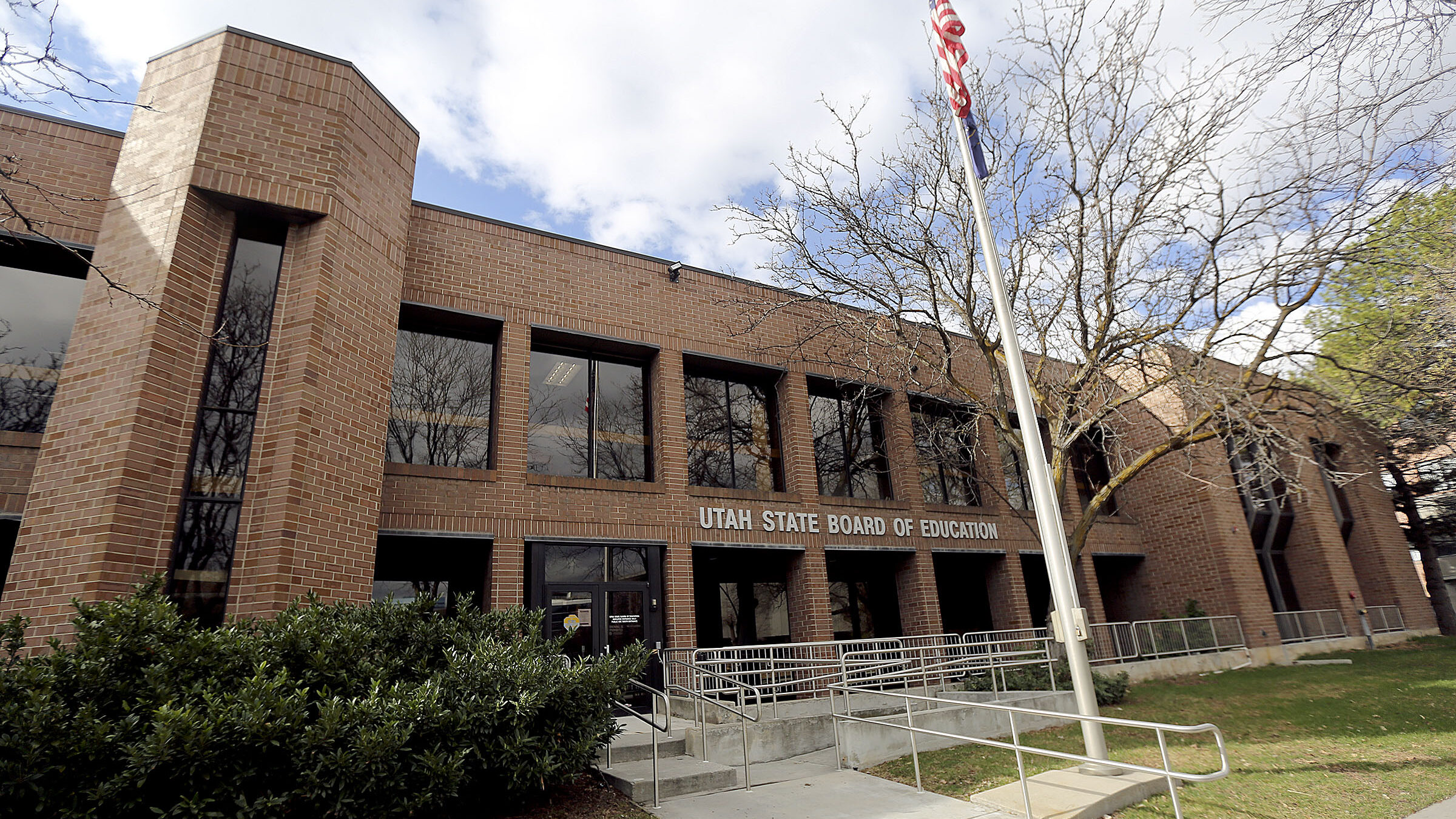Utah superintendents get guidance on library book banning
May 9, 2022, 7:20 PM | Updated: May 10, 2022, 6:41 am

FILE: The Utah State Board of Education building in Salt Lake City is pictured on Tuesday, March 31, 2020. (Deseret News)
(Deseret News)
SALT LAKE CITY — Utah school superintendents got some guidance recently on when they can and can’t ban library books in Utah schools.
A spokesman for the State Board of Education told KSL NewsRadio the memo provides legal guidance from the Utah’s Attorney General’s Office. It was sent as part of new requirements under state law that the Utah State Board of Education provide guidance and training for schools on sensitive materials.
A student has a right to ‘study and inquire’
The memo states that banning a book could be considered the suppression of a student’s constitutional right to free speech.
“The United States Supreme Court has an extremely long history of recognizing that students have their own First Amendment rights in school. The removal of books from a school library can constitute an official suppression of ideas,” the memo reads.
According to Utah law, a book cannot be in schools if it’s considered “harmful to minors.”
This memo defines what that means.
A book could be considered harmful to minors if it “contains nudity, sexual conduct, sexual excitement, or sadomasochistic abuse.”
But, just because a book contains those things doesn’t necessarily mean it’s harmful to minors the memo points out. First of all, the books has to be considered “as a whole.”
If a work contains one of those things… it MUST then be considered under this three-factor test. In order to be harmful to minors, the work must contain nudity, sexual conduct, sexual excitement or sadomasochistic abuse AND appeal to the prurient interest in sex of minors, be patently offensive to prevailing standards in the adult community as a whole with respect to what is suitable for minors, AND lack serious literary, artistic, political, or scientific value.
An anatomy book is used as an example. It could contain nudity but would be considered to have literacy value. So that wouldn’t be banned.
It then goes on to define the terms of nudity, sexual conduct, and prurient interest.
“SCOTUS has defined prurient interest as: ‘Material appeals to the prurient interest, for instance, only if it is in some sense erotic.'”
The memo adds that the Supreme Court has also clarified that “An expression or depiction must at least be erotic in some significant way to the average person.”
Guidance on when a book can be banned
According to the memo a book that is taken as a whole can be banned if it is “vulgar or educationally unsuitable.”
SCOTUS has held that “an unconstitutional motivation would not be demonstrated if it were shown that petitioners had decided to remove the books at issue because those books were pervasively vulgar. …[I]f it were demonstrated that the removal decision was based solely upon the “educational suitability” of the books in question, then their removal would be “perfectly permissible.”
What standards can’t go into book banning
The issue of banning books has bubbled up recently in Utah and across the nation. But the AG’s memo is very clear on standards that can’t go into book banning.
“Books may not be removed because they contain ideas that local school boards disagree with based upon: politics, nationalism, religion, or other matters of opinion,” the memo reads.
In brief, we hold that local school boards may not remove books from school library shelves simply because they dislike the ideas contained in those books and seek by their removal to “prescribe what shall be orthodox in politics, nationalism, religion, or other matters of opinion.” Such purposes stand inescapably condemned by our precedents.
What happens while a book is being reviewed
The memo also gives guidance on what to do if a library book is under review.
“There is no specific law stating whether books must be left in the library when facing a challenge. However, leaving books on the shelves while pending review helps to ensure that schools are not engaging in prior restraint.”
Additional reading
To read more on the law that prompted the guidance, click here
Click here to download and read a letter that outlines the law as it pertains to school library books in Utah.













